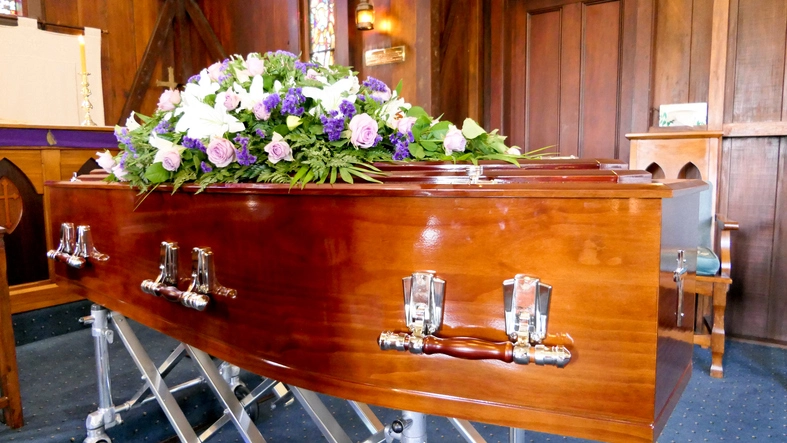Planning for the future is hard, especially when it comes to thinking about the costs of our funeral.
Burial insurance acts like a safety net, covering those funeral expenses so our loved ones don’t have to worry about them.
Let’s explore what burial insurance includes so that you can make informed decisions for your future.
Coverage of Burial Insurance
Knowing what burial insurance covers is important to pick the best burial insurance policy for you.
Policy Benefits
Burial insurance covers various funeral expenses associated with end-of-life arrangements through various life insurance policy benefits. These benefits include:
Funding Funeral Expenses
Burial insurance covers the final expense for your funeral, like the casket, burial spot, preparing the body, and transportation.
It helps your family by easing their money worries when they’re already dealing with a tough situation.
Coverage for Burial or Cremation Costs
Burial life insurance usually covers both burial and cremation choices. It lets you pick the final way you want to be laid to rest, according to what you want.
Your beneficiaries can use the left-over money to cover the following:
- Funeral services, including the casket, vault, and viewing
- Burial plot
- Cremation services
- Medical bills
- Outstanding debts
- Legal services
- Headstone
- Cemetery fees
- Memorial services
- Flowers
- Grave opening and closing
With burial life insurance, you make sure your family doesn’t have to worry about paying for your final expense.
It lets them focus on remembering you and grieving without the stress of money.
Average Funeral Costs in the United States
Planning for a Funeral
No matter how you’re paying, there are many considerations to make when planning a funeral. It could be for yourself or a loved one.

Cremation or Burial?
First, you need to decide if you want cremation or burial because each option has different costs.
Once you choose, you’ll know what other things to consider for your final arrangements.
If you’re having a funeral, you’ll need to consider the funeral cost of a headstone, casket, and opening and closing the grave.
If you’re having a cremation, you’ll need an urn or another container and decide if you want a memorial service.
Make a Decision About a Memorial Service

Planning a memorial service is an important step in helping friends and family cope with grief.
Whether you choose burial or cremation, the body can be at the funeral home during the service.
Even if you choose cremation, you can still ask the funeral home to embalm the body. It enables viewing at the service before cremation.
Many people are now making memorials more personal. Here are some ideas to consider for honoring a loved one’s life:
- Invite guests to share their memories of the person
- Play a slideshow of memorable photos and video clips
- Ask their religious or spiritual leader to create a personalized memorial service
- Select poems, short stories, or religious scriptures to be read in their honor
- Request donations to a charitable cause that was close to their heart instead of sending flowers
Like every part of funeral planning, you and your loved ones should do whatever makes you feel comforted and peaceful.
Contact Service Providers
Once you know what you want, it’s time to look into and contact the people who can help make it happen.
Whether it’s planning for your own arrangements in advance or arranging things for a loved one who has passed away, you should talk to different funeral homes.
Find out how much everything you want will cost. Make sure to talk about things like:
- If they provide food or other refreshments
- If they provide transport to the cemetery
- How long you’ll have use of their facility
- How many guests they can accommodate
- The cost of a casket or urn
- If they can play music over speakers or offer live music, like a pianist
If your loved one had burial or funeral insurance to help pay for their funeral, your task will be simpler.
Contact the insurance company (interlink contact form) where they got their burial insurance policy, and they will explain how much money is available. Also, how can it be paid out?
Understanding burial insurance coverage is crucial for planning your finances comprehensively.
Burial insurance gives you peace of mind by ensuring that it fulfills your wishes without adding financial stress. Compare policies carefully to find the right one for your needs and priorities.
Make sure your loved ones know your final wishes by documenting them. Keep copies in safe places that two trusted people can access, like a home safe or with your attorney.
Have a heartfelt talk with family or friends about your hopes for after you’re gone. It’s a tough conversation, but it brings peace of mind to everyone involved.


